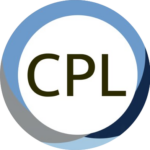About
The Community Practice Lab (CPL) is housed within the Department of Health Sciences in the School of Medicine at UNC-Chapel Hill. Below, we share our mission, approach, and model for community practice. To learn more about partnering with the CPL to innovate, develop, or evaluate new community initiatives, contact us.
Our Mission
 The mission of the Community Practice Lab is to explore and mobilize everyday experiences and occupation, rooted in lived realities, to enhance community and individual well-being through health science practice. Through creative scholarship, innovative program development, and committed partnerships, the lab catalyzes and expands community-driven, sustainable, and knowledge-based initiatives while cultivating leaders and practitioners working to enhance quality of life, equity, and justice across diverse communities and systems.
The mission of the Community Practice Lab is to explore and mobilize everyday experiences and occupation, rooted in lived realities, to enhance community and individual well-being through health science practice. Through creative scholarship, innovative program development, and committed partnerships, the lab catalyzes and expands community-driven, sustainable, and knowledge-based initiatives while cultivating leaders and practitioners working to enhance quality of life, equity, and justice across diverse communities and systems.
We work toward this mission by acting as a hub of learning and innovation, creating space for interdisciplinary students, practitioners, and organizations to critically dialogue, deploy analysis rooted in the everyday experience of communities, leverage strengths-based assessment, and enact justice-oriented action.
Our Approach
We begin our approach recognizing the wealth of strength, skills, knowledge, and history embedded in communities. This approach challenges us to initiate partnerships not only with strengths-based perspectives, but sitting in and celebrating the vitality and resilience across communities before trying to consider or solve “needs.” Rooting our work in the experience and stories of both community members and our team highlights the potential gifts offered to community work and process. An abundance-based mindset encourages resistance to competition and offers rich soil for partnership to flourish. This approach has largely been influenced by the Marian Cheek Jackson Center and UNC’s Partnerships in Aging Program.
The Community Practice Lab is committed to building sustainable, mutually beneficial partnerships that are driven by community interests, strengths, ideals, and needs. We believe that community work requires time, energy, and commitment to foster lasting and effective outcomes. Additionally, our partnership approach requires critical and authentic examination of social power and systemic justice to be responsive to institutional dynamics, historical inequities, and societal norms among institutions, communities, and people that could contribute to harm or further injustice.
Reaching across organizational boundaries in coordination and collaboration is integral to our approach. Our work is often situated in building networks and collective initiatives to foster compounded benefits across systems and organizations. We believe that innovative solutions to wicked problems often lie creating synergies across collectives so that the whole of our work is greater than the sum of our individual contributions. Leveraging trusted partnerships and celebrated strengths poises our work well in a collective and collaborative approach.
We recognize that communities are complex, political, and integrated across multiple social, historic, and economic systems. Norms, culture, and policies that make up these systems are often the root of injustices, disparities, and barriers to health and participation. Working toward justice, therefore must occur across these networks and relationships. To address these wicked problems, we believe it necessary to actively identify and push against unjust policies, power differentials, and social systems that propagate and sustain inequities, even within our own understandings and practices. Therefore, we consistently seek to build programming, initiatives, and curricula that are critically evaluated and oriented toward structural and systemic changes.
Our roots are in “occupation”, or the everyday experience of living – a construct born from occupational therapy. Anthropologists, sociologists, folklorists, and many other disciplines have also examined the situated everyday life of humans and their communities through a variety of lenses. Occupational science was born in the early 1990s as a bridge between these disciplines and the practice of occupational therapy. Today, our occupation-rooted approach encourages us to explore and attend to routines, habits, and the mundane and minute happenings of communities, learning from a myriad of disciplines, including occupational science, to explore the processes of community practice, initiative development, and social transformation firmly rooted in the everyday, practical experiences of those with whom we work.
Our Partners
The Community Practice Lab is committed to building sustainable, mutually beneficial partnerships that are driven by community interests, strengths, ideals, and needs. We believe that community work requires time, energy, and commitment to foster lasting and effective outcomes. Additionally, our partnership approach requires critical and authentic examination of social power and systemic justice to be responsive to institutional dynamics, historical inequities, and societal norms among institutions, communities, and people that could contribute to harm or further injustice. The CPL is actively involved in the ongoing implementation of community initiatives with several long-term partners.
The CPL and UNC’s Partnerships in Aging Program (PiAP) have become deeply integrated because Dr. Ryan Lavalley has been appointed as the Director of the PiAP as it navigates a transitional moment due to changes in University funding and structures. PiAP is an interdisciplinary, campus-wide program that collaborates with community organizations and institutions to nurture dialogue about the personal and societal meaning of having a long life and to bring about a new kind of aging in our communities. While PiAP is housed within the Provost’s office, the programs and work of PiAP and the CPL are currently co-mingling to support efficiency and streamlined program implementation.